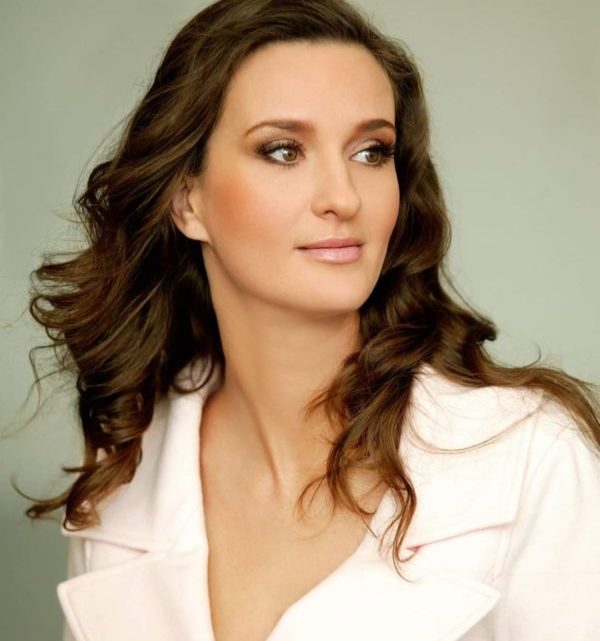
Anjelika Akbar: music is reflecting hidden things beyond reality
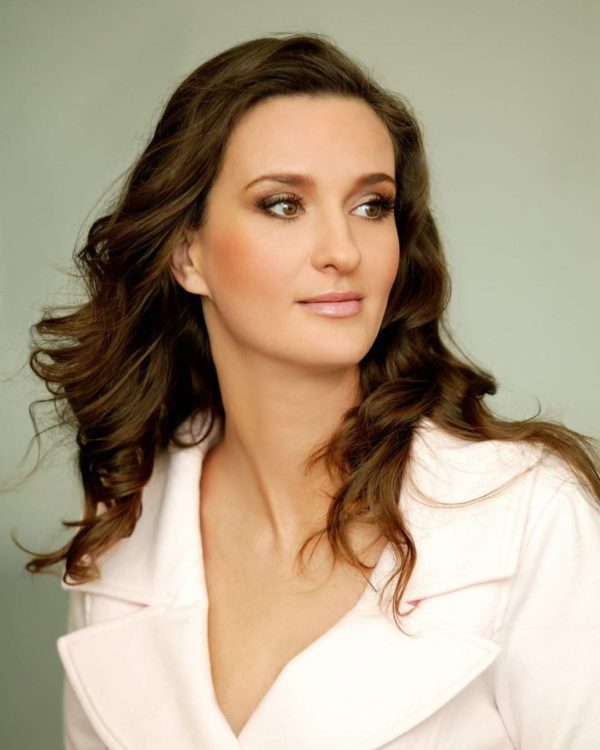
Anjelika Akbar is a Soviet-born Turkish composer, pedagogue, TV presenter and pianist. She has graduated from the Uspensky School in Tashkent (Uzbekistan, USSR) and then from the Tashkent State Conservatory. In the early 1990s she moved to Istanbul, Turkey and defended her doctoral dissertation at the State Conservatory of Haccettepe University Turkey) in the class of composition and orchestral conducting. Akbar has many international music awards and titles, and tours the world regularly. She has released 13 albums and written more than 500 works, including music for several films, including The Crossroads (Yol Ayrımı, 2017). She appeared in the Sony Classical international catalogue as the first Turkish classical musician. One of Angelika’s most recent projects is a multi-format presentation Aivazovsky’s Istanbul. It has been presented in Russia (Moscow, Saint Petersburg, Feodosia), Armenia (Yerevan) and the USA (New York and Los Angeles).
We met with Anjelika in Istanbul, Turkey and sat down to talk in the lobby of Pera Palace Hotel which is famous for having served as a permanent residency for Agatha Christie while she was staying in the country. Anjelika is an unusual, incredibly kind, generous and outspoken woman, and, while sipping Turkish tea with sweets and cookies, we talked about her early-discovered talents in music, her connections to the flow of creation, her vision of the role of music for humanity, her own creative process and her albums. Anjelika is a unique philosopher in music, and this conversation presents a very special view of how we should perceive music and why we should not be afraid to start playing and composing it ourselves.
Anjelika, how did your connection with music start when you were a child, when did you feel a calling to become part of it and how did your parents develop it?
My mother is a choir conductor and pianist, while my father was a conductor and a professor of philosophy. There were many musical instruments in the house. Among them there was a piano. When my parents played the instuments I reacted immediately even as a few months old baby, so they decided to put the piano next to my crib. I reached out, while not even being able to walk, and was happy to press the keys, gradually beginning to understand the instrument’s registers…
Then they tried to play some music and would say its name aloud, while I – still only a few months old – was listening. Then they played the same music, but would give it a different name, to which I started crying. I felt the incompatibility between the music and its name – even then I remembered these connections. I started speaking when I was nine months old, and I’ve been practicing the piano since being six months old.
It seems to have been a lucky coincidence that your parents, being musicians themselves, quickly realized you had this amazing talent?
Exactly. Then they would just give me some books, newspapers, while I chose what I saw there as themes for my improvisations. For example, a photo of Lenin in a newspaper directed me to play about «Lelin» as I called him. If there was a picture of a bunny, I played a piece about a bunny (laughs). I made piano illustrations to things I saw as a tiny kid. By the time I was two and a half, my mother had already taught me to read music notes. I knew their location on the stave, I knew how to find them on the piano, and I knew what they were called.
One could say that music was such a natural part of your early life that you did not have to discover it, as it discovered you.
Exactly. It was amazing, I feel like one of the happiest people on earth because of it. Music entered my life without me noticing, and when I started teaching people myself, I didn’t know how to do it at first, because I absorbed it subconsciously, with my mother’s milk.
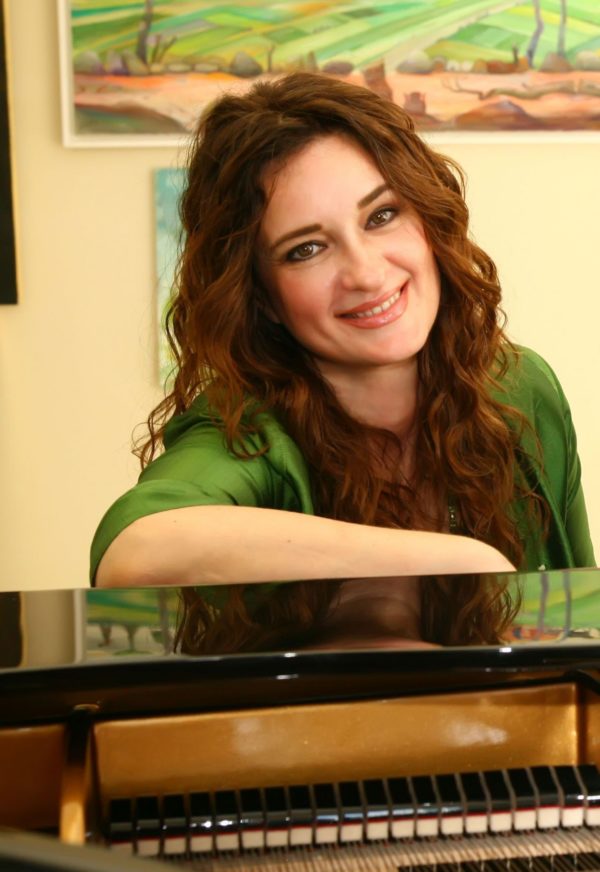
Were there associations, dreams, or visions associated with music in your childhood? How did the first compositions come to you – as dreams or as specific thoughts?
Since I learned the piano technique early, I could easily express my thoughts and feelings in music. The first piece I wrote was called A Turbulent Stream. I saw a waterfall on TV, and was impressed by it, I have always loved water, and even now water is a living, conscious substance that is able to transmit information. I have a lot of works about water – two albums dedicated to it. By the way, the piece was technically quite complex. I probably wouldn’t have been able to record it myself then – so my first piece was recorded by my father. I was 4.5 years old. He showed it to the famous Soviet composer Andrei Eshpai. Eshpai thought that it was my father’s own creation and advised him to continue composing, as my father was a conductor and an accomplished musician himself. My father replied that it was a piece by his 4.5-year-old daughter. My second work composed at about the same time was called Greek Dance. It is inspired by a stamp from my collection (my father brought me a lot of stamps) that depicted Greek amphorae with dancers.
It seems that you were able to express visual and kinetic components of the world, such as the movement of water or people dancing, in music.
Yes, as a child, when I went outside, I listened to nature, watched the wind blowing, listened to the rustle of leaves, in the spring I could watch the snow melt, watched a single leaf on the ground moving. I always listened to nature. I liked to skate alone in the skating-rink nearby, and I remember the wind, the contact of skates with ice. I always heard a silent voice behind the sound of nature. I later read about its existence in Helen Blavatsky’s book The Secret Doctrine. There is a sound that is the prototype of all the sounds that exist in the world. Its philosophical justification is found in many religions: it is a kind of primary sound. I’ve heard it since I was a child, and called it «home», as when I heard it, I felt like my soul was returning home. It was like I was temporarily in my real apartment, while that sound was my real home. When I fell asleep I said that I was now going to wake up, and when I woke up I said that I had been asleep. I did not perceive the real world as all children do. Music was something deeper than my real life, reflecting exactly what was there behind nature and cosmos, something hidden and invisible to the eye.
You are anticipating my next question because I wanted to ask: do you think a composer puts into music something that exists, or creates things out of nowhere?
I would combine these two concepts, as composing involves both. If we accept the point of view that music is a substance that exists beyond the entire cosmos and permeates it and us – because we also consist of vibrations at the atomic level – then these internal vibrations are the essence of music, and it is inside us, because we are woven from it. But if we talk about music composed on the basis of some external impression, I always say that I am only a channel for it – this music is already somewhere in the prototype, and thanks to my abilities, education, and style of my work I am able to build the pipe where energy, knowledge, and the existence of music are combined – and then it flows through me. It will flow differently through the artist or the poet, but it is pre-exists somewhere and is ready to be put down. That is why I also do not separate different genres of art, as their source is the same, it is just that we perceive them separately.
Does it mean that everyone has this potential of joining the primary source of creation?
I am absolutely certain of it.
However, in the modern world, there is a certain hierarchy of talented and non-talented people, creators and viewers, that allows artists, writers and musicians to perceive themselves as being better than ordinary people and behave accordingly.
I do not believe in it.
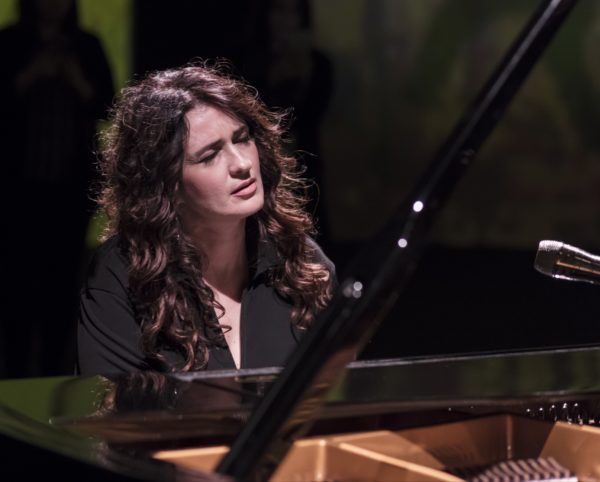
Let us come back to your biography. At some point your intellect must have had an input into your composing activities as you have become interested in the history of music of the 20th century, such as Schoenberg and atonal music.
Of course, at some point the intellect becomes involved, as after a rapid, spontaneous immersion into music I needed to understand the history of music and choose pieces that I particularly liked. Since childhood I really liked the music of Shostakovich, Prokofiev, Stravinsky – I distinguished their works from others at the age of five. Later on, in music literature classes, I did not like romantic works, I was drawn to the unusual, so that something could surprise me. I could already guess many of the harmonies in the works of the 19th century, while I longed for surprises. For a while I was drawn to atonal music, a twelve-tone music system. I became attracted to music by Penderecki, Lutosławski, Schoenberg, Webern. My own musical language also began to change and I started composing in this style. I was interested in the use of intellect and calculation – in the mathematics of music.
That was no longer a sense of flow and transposing it into music, but something else?
Yes, I was learning a new musical language, and began to produce works with such titles as Sonata No. 1, Variation No. 3. There was no programmatic content, they were abstract. These experiments continued in my adolescence and stopped when I moved to Turkey. At the same time, I liked to compose vocal works. At first, I discovered that I liked to search for music in verses, when the intonation of a word or a line produces a melody. Even people’s speech is musical. It turns out that Mussorgsky also composed in this way. I liked it because it automatically became atonal music: there was no clear system, because human speech is diverse, develops from dissonance to dissonance, and the respective harmonies developed not in a usual way, but more intricately, just as I wanted.
I read about Claude Debussy that in his opera Pelléas et Mélisande he tried to reflect the human speech on stage, changing the pre-existing operatic language.
As far as I know, it was Mussorgsky who started doing this for the first time. In addition, at the age of 15-16, I liked the style of the so-called Soviet bards, and I composed several songs based on poems by Gamzatov and Akhmadulina. I also wrote for a children’s choir, and our choir performed them. It is also important to mention that at one point my stepfathe Mark Zayko who was a famous violinist inspired me to compose several works specifically for string orchestra. When one of them was being performed, Boris Zeidman became interested in me and took me to his composition class even though I was only 10 years old. Zeidman introduced me to myself and gave me the tools to express my soul, and I am very grateful to him for that.
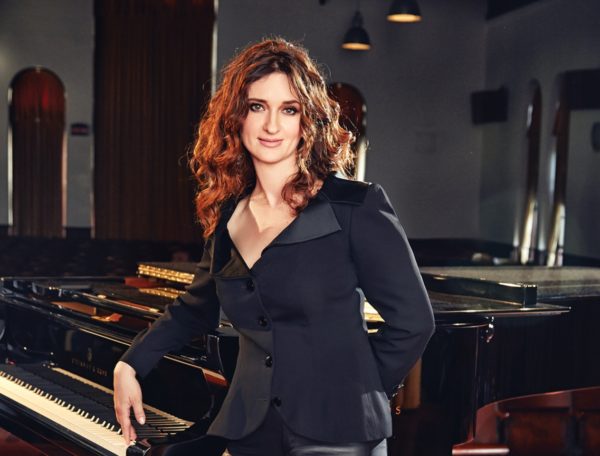
Were there moments of despair or lack of recognition in your childhood and adolescence?
No, I did not have those. Maybe there were some but I did not pay attention to them. I noticed only what I actually had, as I never envied anyone and never competed with others. I helped other students with solfeggio dictation at school, as I wanted everyone to succeed and be happy. I was cherished by everyone, but I did not become a closed-off or narcissistic child prodigy. I think it was because I knew that my success was not a personal achievement but the result of connecting to a source beyond me.
Can you describe this process of connecting to a pre-existing sphere of music?
I feel that there is an ocean above me that is called music, and I put my hand in it, and then new works flow down on top of me. I send a request, an order – for example, I want to express something specific in music and ask for the expression of this feeling. This flow is always there. There are no specific musical works there, but by selecting drops from this ocean I can compose music of a certain genre – a prelude or an orchestral work.
However, Konstantin Stanislavsky postulated that one needs to prepare for inspiration in acting with certain techniques – do you have certain ones in composition?
Yes, these techniques are related to what I have learned about music since childhood. I do not have to remember the sound of individual instruments every time, as I direct myself into the flow while using this technique. I don’t have to use the effort of intellect as my inner system is already prepared and knows what to take from the stream. I have also been studying esoteric philosophy for many years. At the age of seven I realized that there are many professions in the world but their goal is to take care of our physical bodies. Music has other goals – it does not do anything physically, but it has a strong effect on our personality. And I decided that I would like to understand what music does to a human being and learn how to influence others with it.
There have been studies on the impact of music on babies or people with Alzheimer’s disease –and it is clear that there is also a whole range of effects of music on our physical bodies and brains.
I am very interested in this topic and have been studying it for many years. I try to understand the findings in the myths and legends of the ancient world and later on related to the impact of music on human diseases and condition. By the 20th century there were already theories and scientific experiments. I also studied it in the writings of sufists – musical philosophers – for example, a Hindu scholar Inayad Khan: he had a great influence on many musicians and philosophers and studied music therapy. This is a very important issue still to be explored.
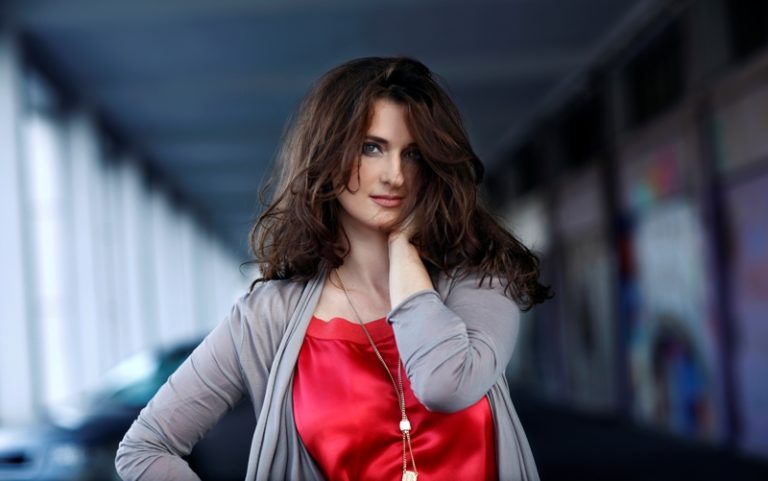
When you moved to Turkey, you steered away from Schoenberg and returned to the simplicity in your musical compositions. What caused this?
My son was born then, and I started playing simple tunes for him. The first works were for my child and for other young children about 3.5 years old. I have been involved in identifying musical talents in children here in Turkey. I recorded these songs, and then the conductor Rengim Gökmen heard them and advised me to appear on the music scene in Turkey with them. I kept my complex compositions for myself, but I also fell in love with this new style.
You work in different genres and have mentioned that when working on film music you become all the actors at the same time and immerse yourself in the atmosphere of the film itself. Can you describe this process?
Working on film music is creating a musical script that is parallel to the normal one. Since childhood I have been used to translating everything into the language of music. So when I read a script and see images and situations, I immediately feel their inner music. I start reading the film from a musical point of view, look inside myself and write down the motives, themes that are born in me: sometimes they come easily, sometimes you need to work on them. When I have done with probing the film like that, I begin working on human characters. I study them and try to understand the music of each of them, similar to Wagner’s system of leitmotifs. For instance, I have written music for a documentary about the creation of village universities, a project started by Ataturk to raise the level of education among the population. Each person in this film has a musical leitmotif that I defined for them. When they meet, their themes create a new synthesis.
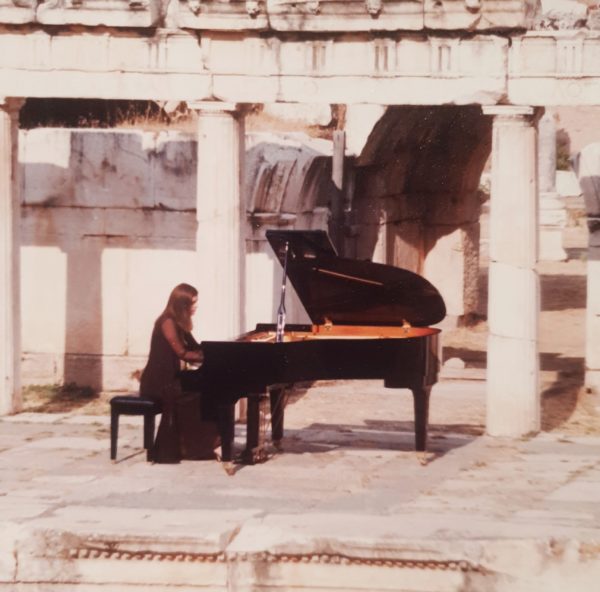
Following this logic, music can be associated not only with positive images, as one can find leitmotifs also for Hitler and Stalin.
Music in films can have a practical purpose– to illustrate what we see on the screen. On a sensory level it makes us understand who the main character is, what the situation is like. As a composer I need to think whether or not I would like to create a figure of Hitler on a musical level. I would rather not as I would have to dive deep into his energy. That is why I have chosen only two scripts so far, since this is always a deep spiritual journey, and I do not want to burden myself with many unrelated themes.
Who inspires you among other composers?
In the sphere of film composition I love Hans Zimmer very much. I always find deep correspondence between my own perception of the film and music created by him. With many composers I love I feel that I could have written this music. I believe that we all create the noosphere together, and this sense of community with other composers is not accidental. I also love Scriabin very much. I defended my doctoral thesis on Scriabin here, analyzing his works from a harmonic, melodic, rhythmic and philosophical point of view – I wrote it in Turkish. I listen to contemporary composers, but I don’t know them very well – sometimes I pick them up randomly. I think this is due to the fact that I am in Turkey, it is a different world here – in London or New York I would have learned more of what is going on in contemporary composition. In Turkey I lack this involvement with the Western musical context, so I often do not even want to go to concerts of modern music here, because in this country you still feel a little apart.
I wonder what advice you would give to people who are afraid of making music themselves and think they will never understand it. Should they read music literature, play an instrument, try to dive into the ocean that you have so vividly described?
This is always possible, each of us has an incredible number of abilities. If a person wants to start perceiving music, one needs to listen systematically. To start listening, we need to find a piece – even one – that really fascinates us, because even that one can reveal the secrets of music to us. If this is folk music, you should be aware of certain limitations – it would be like a diamond in the rough. Search the Internet for what you like, listen to yourself, honestly determine what kind of music your spirit is drawn to, what kind of music will influence you. A person who loves jazz and who is not used to classical music, should only gradually approach it follow the natural impulses. Set yourself a goal: «I want to feel the depth of this music». Intelligence alone is not enough, music is always connected to feelings. What we listen to is important: not only with our ears, but with our whole being and heart. On the other hand, if you want to perform something, you need to find an instrument that expresses you, even if it is a bottle that you would tap with a fork, you can still create very interesting rhythms on it, as people do with glasses of different sizes. Of course, it is difficult to be self-taught, it is necessary to find a teacher who has passed the way of learning to play this instrument – you need to learn certain techniques to express yourself through a specific instrument. I always give children the opportunity to improvise, and this develops them immensely. This is another tip – just sit down at the piano, put your hands on the keys, tune in and let your fingers move. Amazing things can come out. It often happens that a person sits down at the instrument for the first time and creates something amazing. You have to listen to yourself and let it develop.
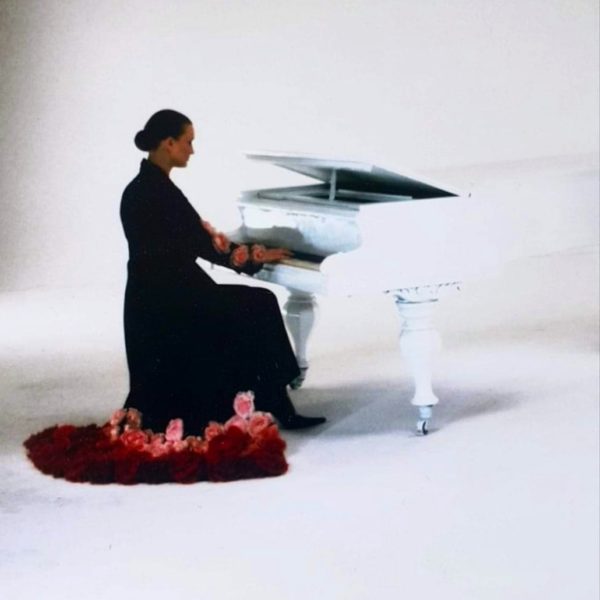
I really like this democratic approach to creating music. I adore the idea that there are no non-gifted people and geniuses, that everyone can compose their own works. Please tell me more about your own albums.
My first disc was called Water. There are 17 technically demanding works, I called them Preludes, they are quite simple for perception. Then I recorded a CD at Sony Classical, and became the first Turkish musician to enter their international catalog. I had always loved Vivaldi’s The Four Seasons very much and wanted to run the score through my fingers, so it is a Klavier (piano version) that does not actually use the original score. I tried to do an experiment and imagine what would happen if Vivaldi wanted to write The Four Seasons using only piano. I didn’t want an intellectual connection to the score, and I even did not purchase it. Another disc was called A Sip of Water, it was sort of a sequel to Water. There was also a CD Bach Oriental – I was ranked first in the local charts for a long time with it, Eminem came after me (laughs). This was music of Bach transposed to Eastern motifs. It was my own experimental laboratory, a fantasy of what would have happened if Bach had come to Turkey: I started with a transposition of his C-minor Fugue to the Eastern motif. After that I called the leading folk musicians in Turkey, some of which worked with me in Rotterdam earlier, and Djoke Winkler Prins also joined the project, and then we made a collective CD. Then there were two discs of film music. There was a CD with piano and symphonic music, a Piano Concerto «The Circle of Love» was included in it. In the album called «Likaphonia» (that plays with a short version of my name) I collected a few pieces of classical music that influenced me in childhood. I also have a symphonic poem based on Nicholas Roerich’s book Sacred Signs. It was conducted here by Antonio Pirolli, but the first attempt at a premiere was a failure. It was supposed to be premiered in winter, a Russian conductor flew in, but the electricity was cut off due to snow and the premiere was canceled. I use a symphony orchestra and a group of Indian instruments there – all the Indians had to be sent home (laughs).
Many musicians mention hard, intense work where they get bits of inspiration after hours and days of strenuous routine work. And your story is filled with constant joy and happiness.
Yes, I usually either have a holiday or waiting for it (laughs). I think it depends on the person – how we perceive the world, what we see in it, what we focus on. I like to notice and feel joy, I do not perceive my work as exhausting, although I work like crazy. I never sit still – if I sit, it is also for work work (to play or compose). The world always sparkles for me.
What do you say about artificial intelligence theories? There are suggestions that robots will soon start composing music. There are also experiments in combining classical music and virtual reality. What do you expect from these developments?
I don’t think they are a real threat to human creativity as music feeds on the energy of the heart and soul. Even if the robot copies it, it will be an artificial copy, so I do not expect anything terribly dangerous for humanity from these things. After all, there is a difference even between an electronic and a real musical instrument. Artificial intelligence cannot copy a real person with all its complexities, nuances, and states of mind. But when I was five years old I had a dream that instead of a stage there was only a screen, and I was sitting behind it. And if I focused my senses would be transmitted to the screen and people would see them – that is, by telekinesis my thoughts would be materialized in kaleidoscopic colors on the screen. I don’t know if you can call it virtual reality, but I would have definitely liked to perform in this way.
Such a project would cut down on your own visibility, while we are used to star culture in music.
I want the musicians to feel that we are only transmitting things that pre-exists in this world. I would like to take a back seat in the connection between audiences and music, because music is something that makes me no longer fully present as an individual. When I am on stage, I am not there – there is only music, I step back, I give it the stage, music plays the main role. That is why I am never scared at performances, and it would be good if such attitude was adopted by others.